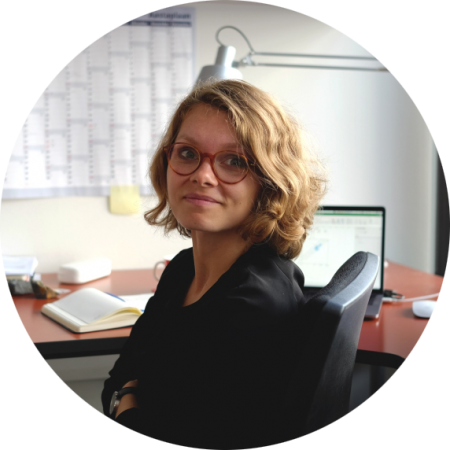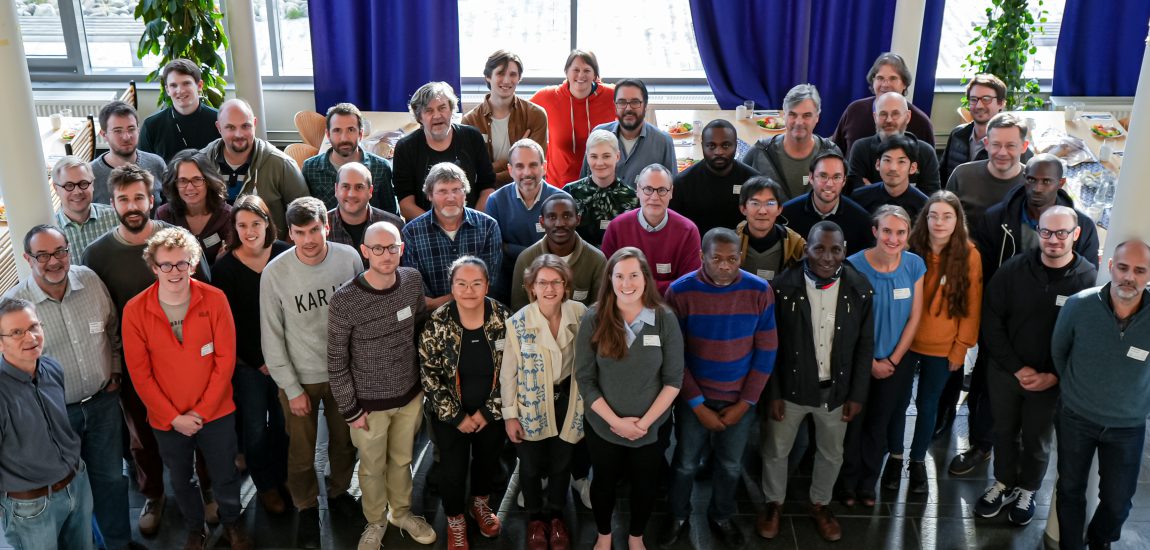
Figure 1. Scientists from around the world joined the Gabon and Oxygenation of Earth - Drilling Early Earth Project (GOE-DEEP) workshop to discuss the potential of continental drilling in Gabon to address the timing and the degree of the Great Oxidation Event.
GOE-DEEP: An International Continental Scientific Drilling Program (ICDP) proposal to probe Earth’s Great Oxidation
Written and edited by Ichiko Sugiyama, Kärt Paiste, and Aivo Lepland.
This past November, over 45 scientists and industry members from 13 nationalities gathered at the Geological Survey of Norway (NGU) in Trondheim to participate in the International Continental Scientific Drilling Program’s (ICDP) thematic workshop-the Gabon and Oxygenation of Earth – Drilling Early Earth Project (GOE-DEEP). The shared interest in the time when Earth first accumulated significant oxygen in the atmosphere and the following environmental consequences unite this diverse group of people. This interdisciplinary collective’s broad expertise challenges previously proposed ideas as well as assist in resolving the debate surrounding the timing, magnitude, and significance of Earth’s early oxygenation and its impact on emergence, diversification and evolution of life. However, accessing the records of the Earth’s ancient history is an immense task. With the support of the ICDP, such endeavors become possible. Here we will discuss (1) what is ICDP, (2) what did we accomplish during this workshop, and (3) what are we trying to achieve?
What is ‘The International Continental Scientific Drilling Program (ICDP)’?
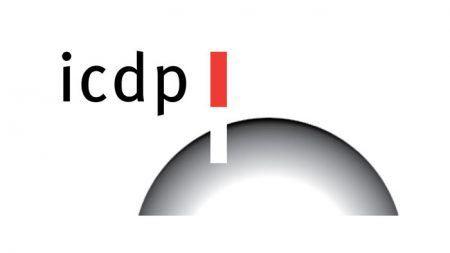
Figure 2. International Continental Scientific Drilling Program (ICDP) logo.
The International Continental Scientific Drilling Program (ICDP; Figure 2), founded in 1996, is a multinational program helps fund geoscience projects centered around continental drilling. Along with the financial assistance from ICDP, 22 ICDP-affiliated countries, and UNESCO, these continental drilling projects can be fully funded. Currently, the ICDP headquarters is in the GFZ German Research Centre for Geosciences, which hosts highly qualified scientists and administrators who assess, fund and coordinate drilling projects proposed from around the world (Figure 3). The targeted ICDP drilling projects aim to provide new insights into 1) Geodynamic processes, 2) Sustainable georesources, 3) Natural hazards, and 4) Environmental changes. Education and outreach are integral to the ICDP policy to ensure transparency and public acceptance. Click here for more information on the ICDP projects.
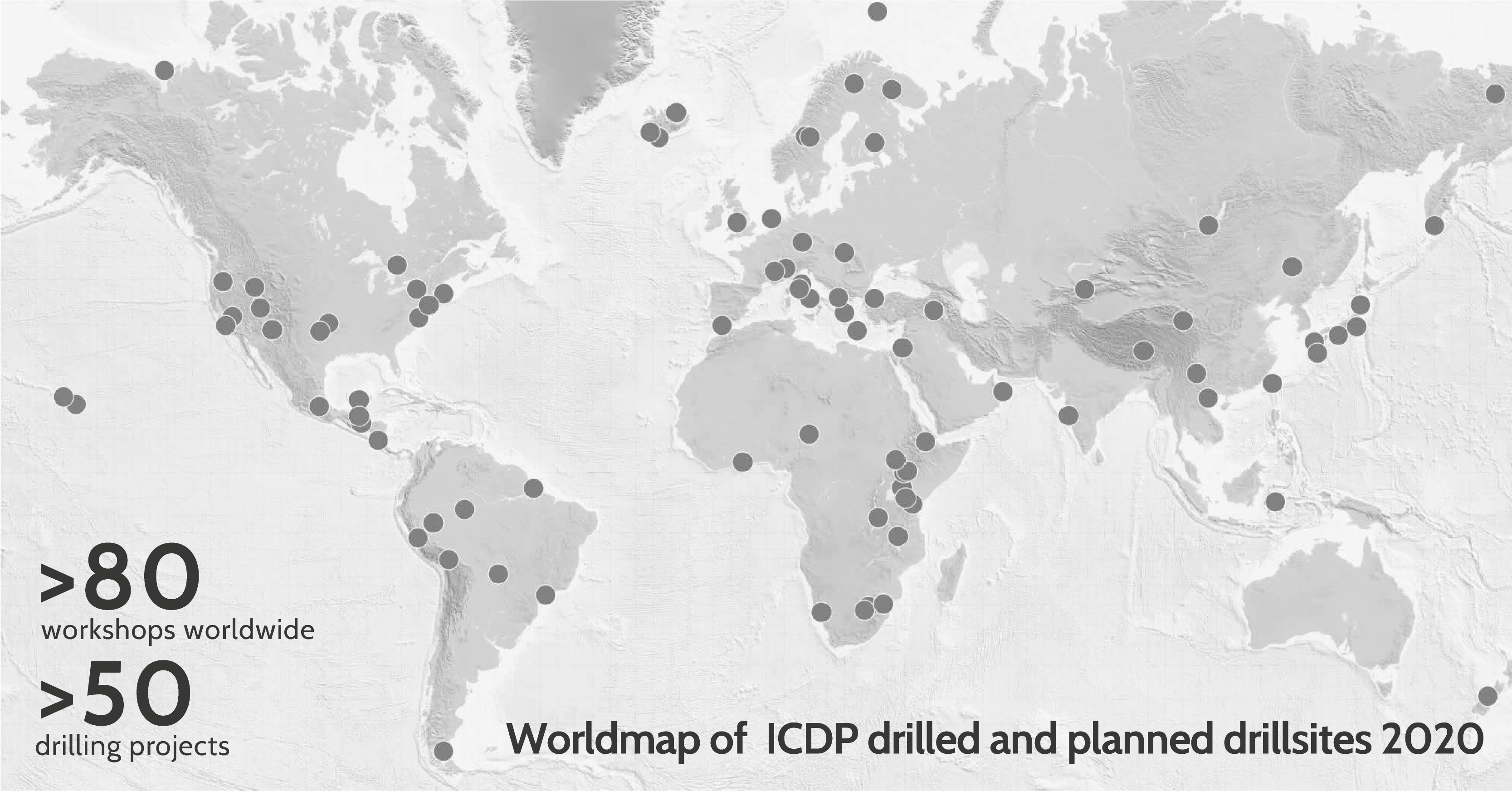
Figure 3. The map of all the ICDP completed and planned drilling projects up to 2020.
The purpose of ICDP is to provide “seed” funding to as many cutting-edge and globally significant projects needing drill core records. Materials obtained from the drilling projects are diligently cataloged, stored, and made available for anyone to access for their scientific research. Upon acceptance of a proposal (Figure 4), ICDP supplies ~20% of the funding on average, while the proponents work to secure additional funding to run the project. This co-mingling of funds promotes international research collaboration, especially between ICDP-affiliated countries, to guarantee a successful and fully-funded drilling campaign.
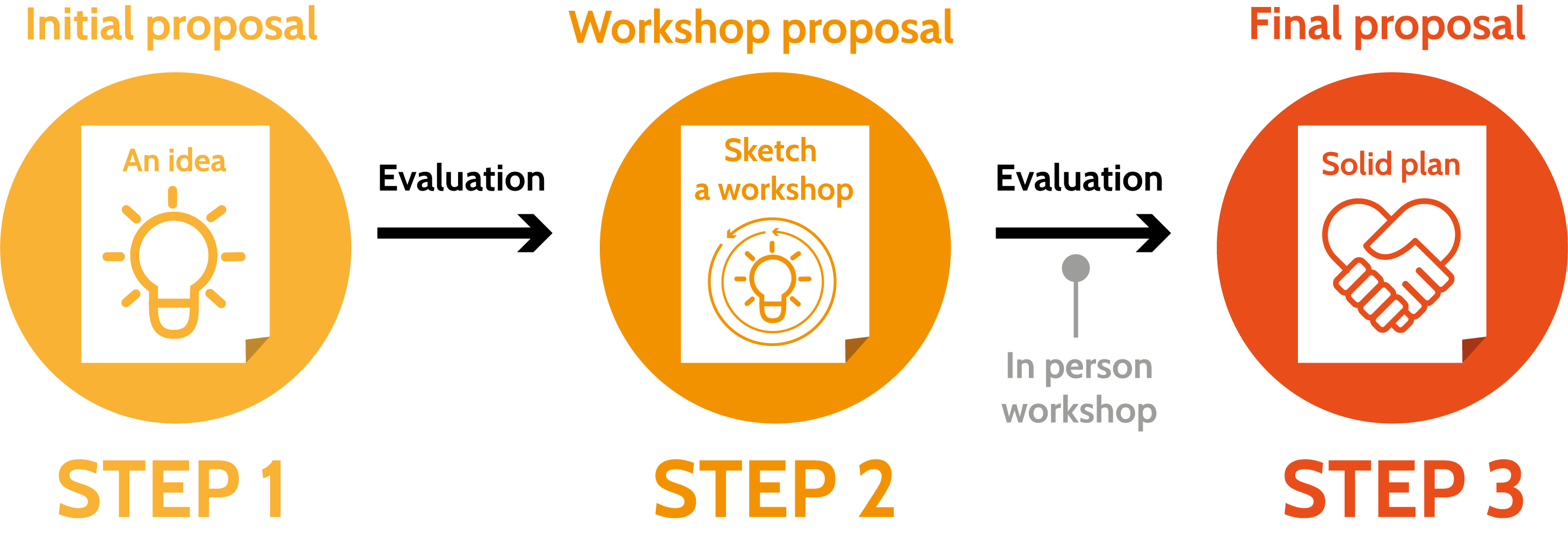
Figure 4. To ensure a project’s success, many steps are involved in getting your ICDP proposal approved.
The ICDP GOE-DEEP workshop
The GOE-DEEP workshop provided the proponents a means to collectively develop a full ICDP proposal for drilling in the Francevillian Basin in Gabon (on the African continent; Figure 5). The basin covers 42,000 km2 and is divided into four main sub-basins: Franceville, Okondja, Lastoursville, and Booué. The Francevillian rocks in these sedimentary basins are Paleoproterozic (~2.5 to 1.6 billion years ago) in age. As the minerals that makeup the sedimentary rocks settled from a solution (e.g., seawater or pore waters), they captured chemical fingerprints from their immediate environment. Following burial, the sediments were compacted into the rocks we see today (refer to the rock archive blog), transferring clues about the chemical and physical conditions under which they formed into the rock record. One of the principal reasons this proposal was put forward was due to the nature of the sampling site: These rocks are amongst the best preserved across this critical period in Earth’s history.
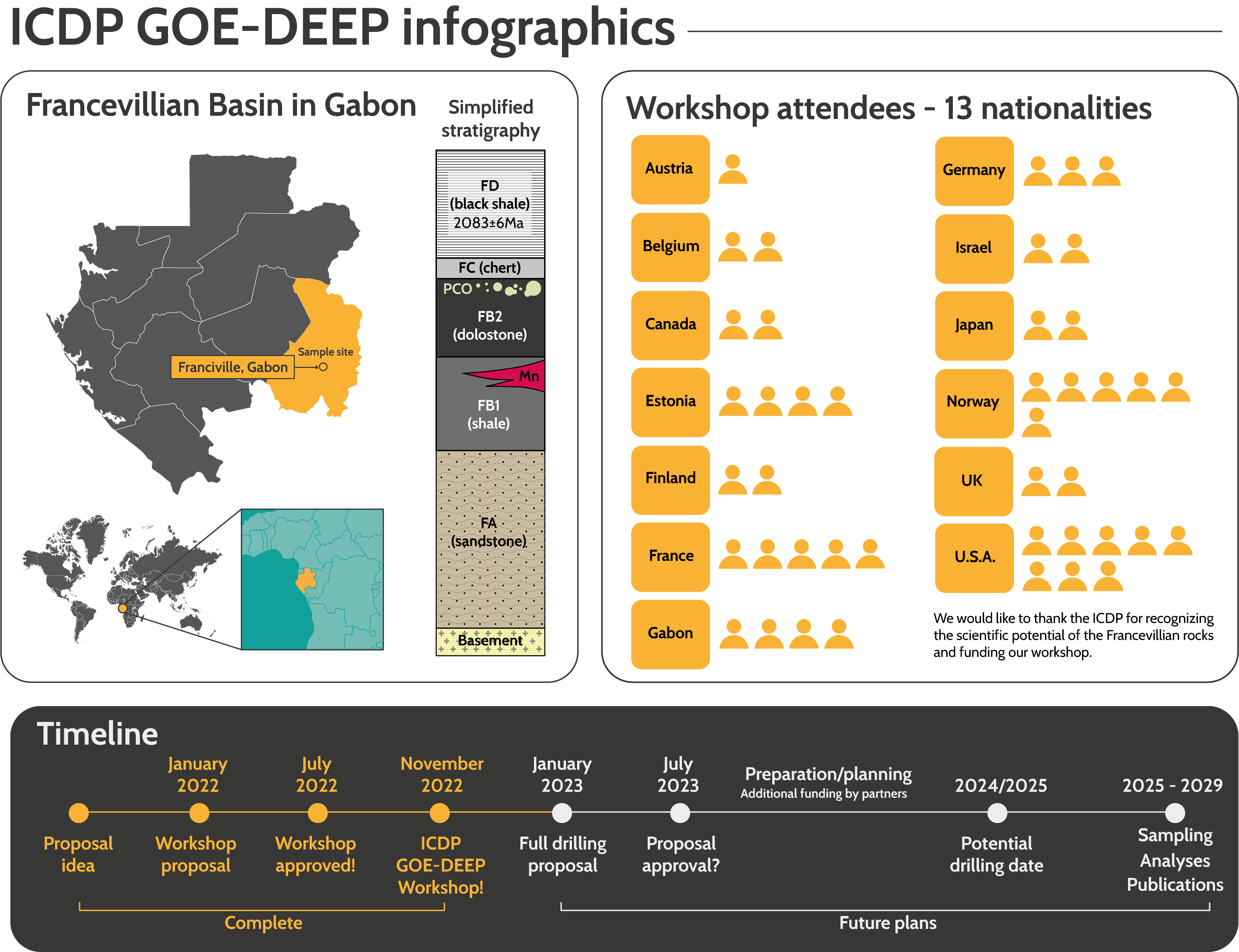
Figure 5. Infographics on the ICDP GOE-DEEP project. The drilling sites are located in the Francevillian sub-basins, Gabon. Twelve nationalities came together for the workshop. The next step will be the final proposal submission in January 2023. If successful, drilling may commence as early as 2024. Note: ‘PCO’ stands for ‘putative colonial organisms,’ and ‘FA, FB, FC and FD,’ are the names given for different rock successions.
The primary goal of the GOE-DEEP project is to provide new insights to Earth’s Great Oxidation and refine the geochemical tools used to reconstruct marine redox landscapes across this interval in Earth’s history. One key goal is to understand if previously argued perturbations in Earth’s various elemental cycles (e.g., C, S, N, trace metals) were truly global, representative of local conditions, or perhaps altered by post-depositional processes to a greater degree than presumed. Importantly, a former ICDP-funded project, ‘FAR-DEEP’, provided drill core records through rock successions, similar in age in Russia, which offered (and still offers) a unique ability to test global and local hypotheses on two cratons.
What did we do at the GOE-DEEP workshop?
Day 1: Introduction to the Geological Survey of Norway (NGU)
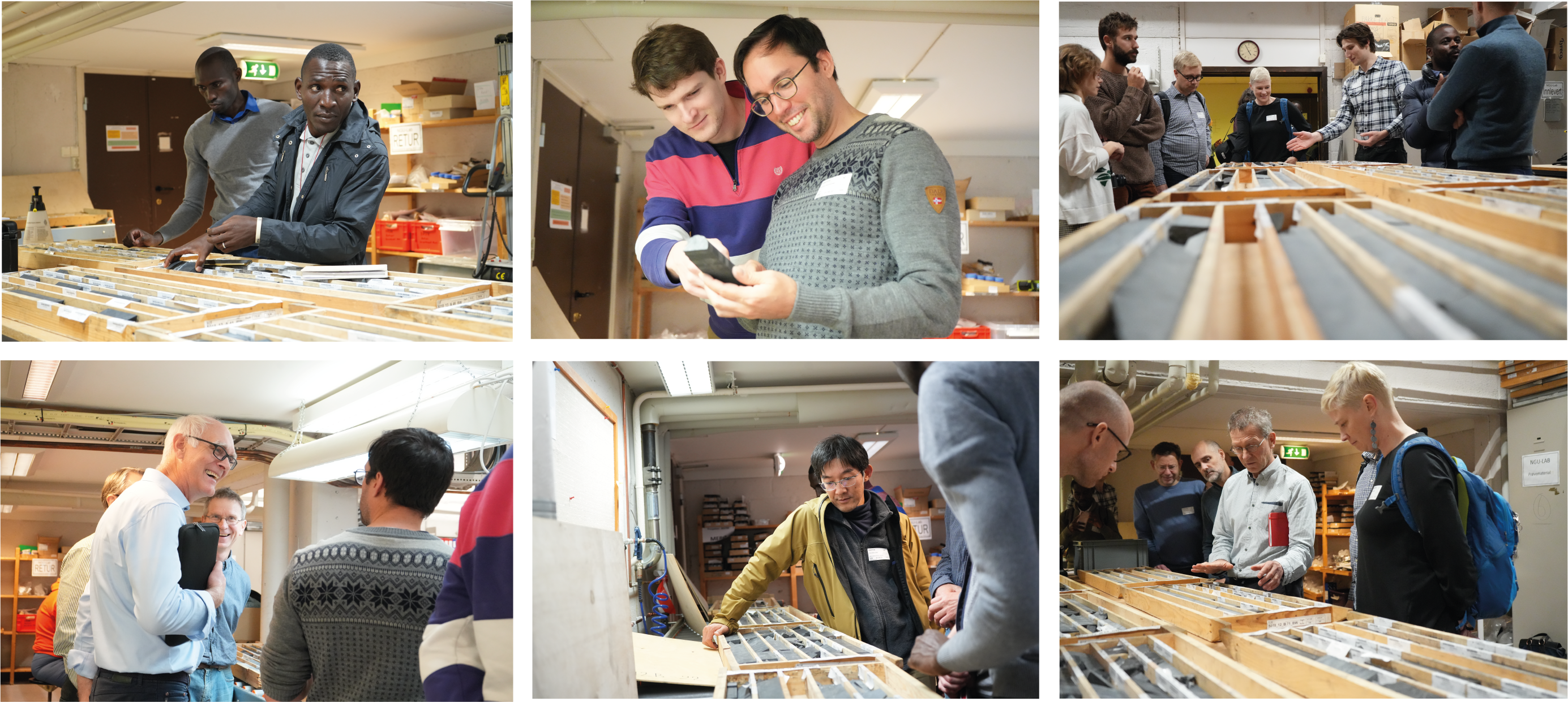
Figure 6. Scientists were observing previous FAR-DEEP ICDP drill cores, which are similar in age to the GOE-DEEP project.
Some scientists arrived a day early to the workshop to visit Trondheim, as well as the facilities at the Geological Survey of Norway (NGU; Figure 6). Melanie Mesli, who manages the ICDP database and core sampling, and NGU geoscientists, Dr. Aivo Lepland and Dr. Malcolm Hodgskiss, organized the viewing of the previous FAR-DEEP project’s drill cores. We also had the opportunity to listen to Dr. Ulrich Harms, the Executive Secretary of ICDP, who gave an informative talk on the workings of the ICDP. The scientists came together at the end of the day to have dinner and enjoy a pleasant evening in Trondheim.
Day 2: Introduction to the GOE-DEEP project

Figure 7. Dr. Tony Prave (left), Dr. Kalle Kirsimäe (center), and Dr. Aivo Lepland (right) presenting a broad picture of the GOE-DEEP project, its relation to the Earth’s history and the geologic setting of the Francevillian Group.
All participants were present at the NGU to attend the GOE-DEEP workshop on the second day. To facilitate open communication and a familiar atmosphere, the workshop started by introducing all of the participants. Then the program continued with a series of talks to (1) provide a general overview of the unresolved issues surrounding Paleoproterozoic biogeochemical elemental cycling (of which there are many), (2) introduction on the geology of the Francevillan rocks and their significance, and (3) share information on the GOE-DEEP drilling targets (Figure 7). After exhilarating scientific discussions, a nice pizza party was a bonus to complete the day.
Day 3: Breakout sessions – Dividing and conquer
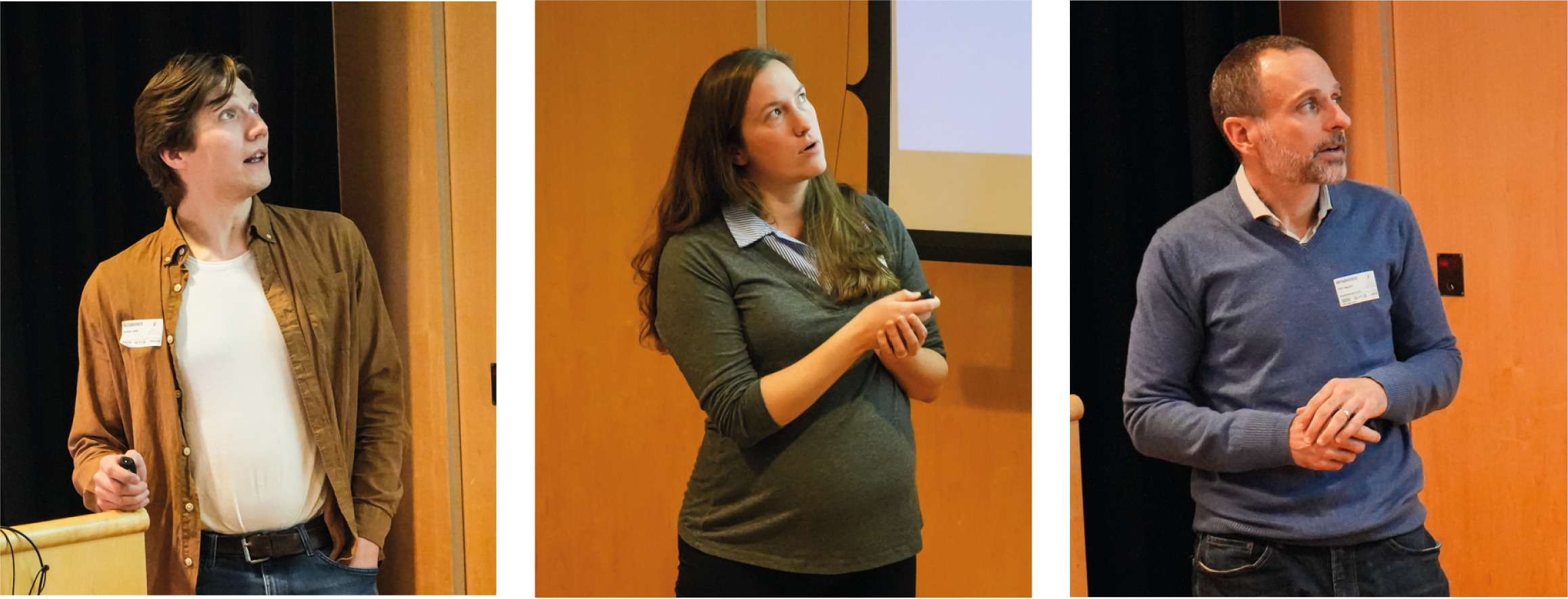
Figure 8. Seven scientists gave individual presentations on their respective themes for the GOE-DEEP proposal. Each presentation was approximately 10 minutes long, explaining the primary questions they wanted to address and the approach we should take to answer these questions using the GOE-DEEP drill cores.
Several early and senior career scientists took on the responsibility to present themes under the umbrella of the GOE-DEEP project to narrow down the key questions to address once the drill cores are retrieved from the Francevillian Basin (Figure 8). Seven intrinsically connected themes were put forward: (1) Tectonic setting, (2) Geochronology, (3) Siliciclastic rocks, (4) Carbonate rocks, (5) Biosignatures, (6) Mn origin and mineral resources, and (7) Modelling of various Paleoproterozoic biogeochemical processes. Once each theme leader presented their thoughts on the critical questions and testable hypotheses, scientists voluntarily joined the different breakout sessions to discuss and further refine the proposed scientific goals.
Day 4: Finalizing the outline of the proposal
After the breakout sessions, the theme leaders and participants gathered to compile a rough outline of the final ICDP proposal. The working groups (from the breakout sessions) summarized questions and hypotheses into one draft document, which the workshop participants then discussed in detail. The drafted document was modified and finalized after considering all inputs from the open discussion. Another critical aspect was to identify possible funding avenues to supplement the potential ICDP funds from workshop members, as those cover a portion of the total drilling costs (Figure 9). Once the meeting came to an end, everyone gathered for a lovely dinner in downtown Trondheim to enjoy the company of Earth history enthusiasts before parting ways.
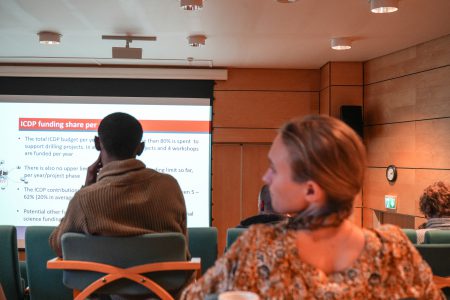
Figure 9. Presentation on the financial logistics needed to make this ICDP project come to fruition.
What’s next?
Although the proposal was collectively drafted during the workshop in November (2022), the senior scientists will finalize and submit the full proposal to the ICDP committee on January 15th, 2023. The committee’s evaluation and feedback can take some time, and success is not guaranteed; however, on the positive side, there is no “rejection” when submitting an ICDP proposal. If you did not receive a fully positive proposal evaluation and the funding was not granted, the proponents can rework the proposal according to the committee’s suggestions and resubmit them in the following year. Thus, never give up!
Once funding is secured (fingers crossed), planning of the drilling project starts and aims to resolve some of the unanswered questions about ancient Earth’s history. So, stay tuned!
Acknowledgments
Firstly, we would like to thank the ICDP for recognizing the scientific potential of the Francevillian rocks and funding our workshop. Additionally, thank you to all organizers and presenters for planning a fantastic workshop. Furthermore, we would like to thank the Geological Survey of Norway (NGU) for hosting this event. Finally, thank you to all the workshop attendees for making the meeting so enjoyable!
List of attendees: Aave Lepland (Norway), Aivo Lepland (Norway), Alan Rooney (USA), Alexis Ndongo (Gabon), Annie Bauer (USA), Athena Eyster (USA), Augustin Dekoninck (Belgium), Cedric Ligna (Gabon), Christian Koeberl (Austria), Christophe Thomazo (France), Clara L. Blättler (USA), David Fike (USA), Frantz-Gerard Ossa Ossa (Gabon), Georg Feulner (Germany), Gregoire Andre (Gabon), Ichiko Sugiyama (Israel), Itay Halevy (Israel), Joonas Virtasolo (Finland), Josh Goldford (USA), Joshua Davies (Canada), Kaarel Mand (Estonia), Kalle Kirsimae (Estonia), Kevin Xavier Nzamba (Estonia), Kärt Paiste (Estonia), Lotta Purkamo (Finland), Magali Ader (France), Malcolm Hodgskiss (Norway), Mark van Zuilen (France), Mathieu Moussavou (Gabon), Matthias Halisch (Germany), Matthias Sinnesael (France), Melanie Mesli (Norway), Michael Bau (Germany), Michael Kipp (USA), Peter Crockford (USA), Robert H. Rainbird (Canada), Stefan Lalonde (France), Thierry De Putter (Belgium), Timmu Kreitsmann (Germany), Tomohiko Sato (Japan), Tony Prave (UK), Trond Helge Torsvik (Norway), Ulrich Harms (Germany), Yuichiro Ueno (Japan), and Øystein Nordgulen (Norway).
Ichiko Sugiyama
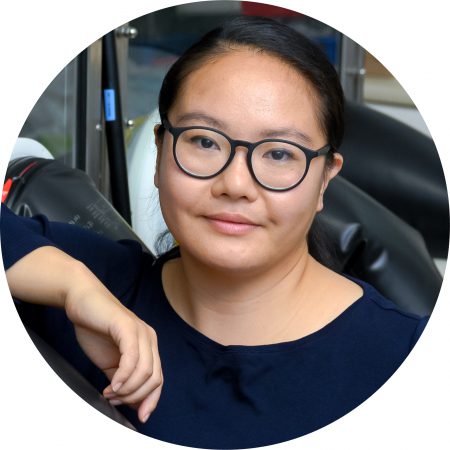
Ichiko is originally from Tokyo, Japan, and is a Postdoctoral Investigator at the Woods Hole Oceanographic Institution (WHOI) quantifying the rate of marine carbon export through the lens of Fe fertilization. She previously investigated the role of iron minerals in regulating metal and nutrient budgets in ancient oceans. She is passionate about communicating science to the public in all STEM fields and contributes by volunteering for different organizations (EAG, EGU, GSA, SEG, etc.). As part of her outreach and DEI work, she has mentored K-12 educators, undergraduate and graduate students in North America and in the Middle East. To find out more about Ichiko, please visit her website.
Kärt Paiste
Kärt is originally from Pärnu, Estonia. She is currently an MSCA postdoctoral fellow at Washington University in St Louis, where she investigates the uncertainties under which biogeochemical sulfur cycling occurred at critical junctions in Earth’s history. In addition to her research work, she engages with K–12 schools via outreach activities (i.e., European Researchers Night, Back to School program, WashU’s SciZoom) and works with high school students on mentored research projects (WashU STARS) to increase diversity and encourage participation in STEM fields. To raise awareness and address racism in geoscience, she is an Unlearning Racism in Geoscience pod member at WashU (URGE).
